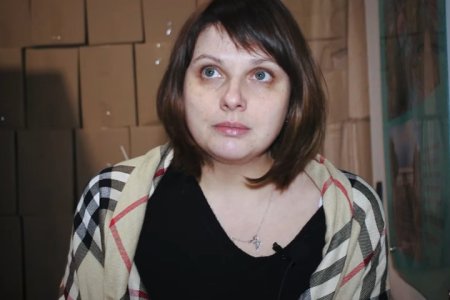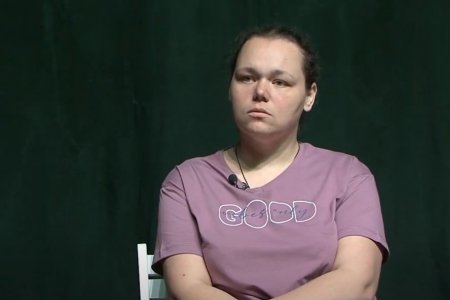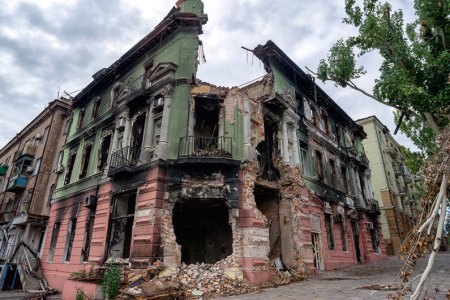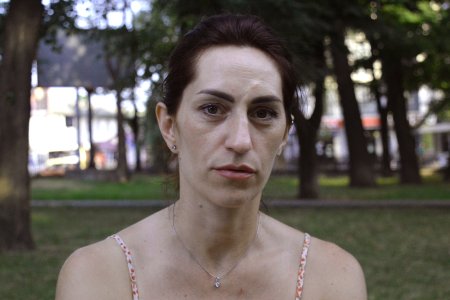We met with Oleksandr, the code name “Typhoon”, in a village in the Donetsk region. Oleksandr does not reveal his role in the war, but he is sure that the Russian army should not be underestimated and that everyone should prepare for war. He has been fighting since the age of 24.
In 2014, when they said that my friends had died, I was shattered. And when we got out of captivity, we discovered they were alive. When we were leaving Ilovaisk, they fell behind and could not catch up with us: they hid with the locals. And we were told that they had died, that was all. So when I discovered they were alive, I had tears of joy.
Were you in captivity in 2014?
Yes, after Ilovaisk.
Tell me how it was.
Electric immersion water heaters were tied to someone’s hands. Someone was beaten with bats. Some were taken away and never returned. There was an exchange around 24 or 25 December, before 2015: we were exchanged, and I returned home. Then I continued to serve.
Would you surrender again, knowing what would happen to you there?
Of course not. Even the first time I had no desire to surrender. Since we were soldiers following orders, there was an order to surrender from our officers. We were following orders.
What do you think about how much the attitude towards the war changed in the whole country, among civilians? How positive is that?
At first, when this big story began, we were like a nation. I remember very well the first days of the war when grandmothers and children ran with shovels and dug trenches. Then there was real pride.
Where was it?
It was in Kyiv, Shevchenko Square, Pushcha-Vodytsa.
Were you fighting at that time?
There was a full-scale war, and we have already begun to act. So, yes, each group member was already in their position and had their tasks. Our task was to communicate with the military and give them targets.
So you were doing intelligence?
It is possible to say so. Every resident of Bucha and Irpin was a scout. Locals came out to us; they explained and showed us what, where, and how. We have processed the information and given it to our gunners.
What has changed in attitude to the war since that time?
It seems to me that people began to get tired of the war.
Is this what it looks like from the outside?
Yes, even in conversation, in everything. You read telegram channels, and it seems everything is fine with us. There is no war anywhere, and everything is fine in Kyiv, peaceful life.
Do you think it’s wrong?
I think that we should also have propaganda. But it should be moderate. And people should not break away from reality. People should know they [the Russian army] will be here if we are not. We are not everlasting; we also end and fast enough.
Do you mean everyone will have to fight one way or another?
I think so. I believe the people responsible for the mobilization processes should have brought the population to this understanding smoothly. At a minimum, I believe the reservists should be called but not in excess. That is, some work and preparation had to be carried out. They had a year. We won the year.
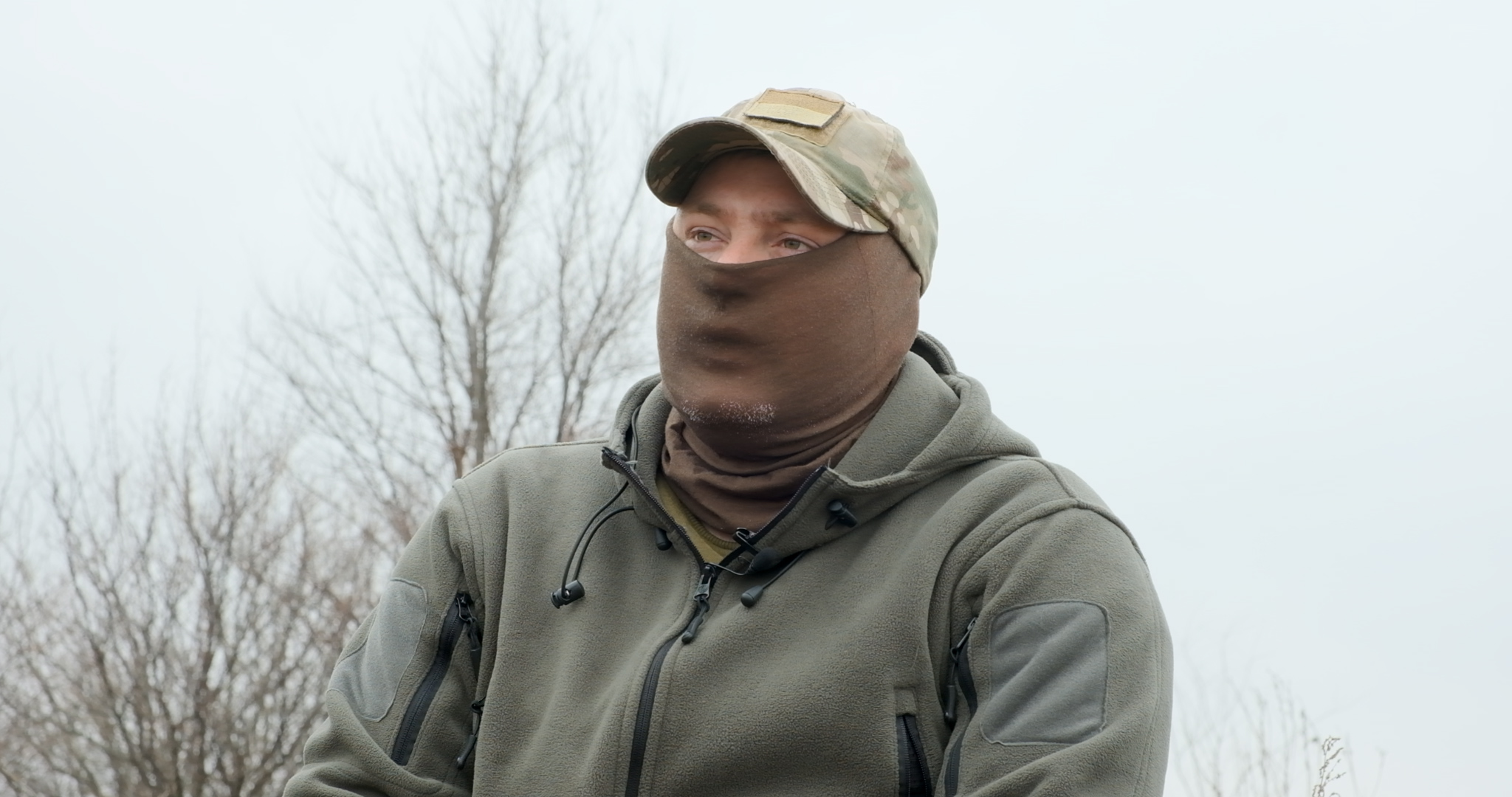
How many combat-ready military men have we lost during this time, and how irreparable are these losses?
In the first weeks or even months of the war, we lost a lot of combat-ready, trained, professional personnel. A lot of specialists died in my circle of friends. These are people who have been in the army all their lives, professionals of the highest level. It will take ten years to nurture such a team (if we start right now). It is necessary to prepare personnel. Prepare specialists. Invest in them because this is our future. Russia is not going anywhere. If the war is put on pause now, it will burst forth in ten years. It is necessary to prepare for this. It is always essential to prepare.
What is the specificity of your work?
We have trained instructors who will continue to share their experience and knowledge with other service members.
What kind of instructors?
It was regular infantry training and scouts.
How can you generally describe the process of training scouts?
Preparing a scout is not so easy. First, a person must have talent and practice a particular lifestyle. For example, you cannot mobilize some locksmith and say: “That’s it. Now you are a scout. Now you will go behind the front lines and collect data,” — this is not how it works.
They must be found somewhere.
They must be found and educated. But first, we must get into their head and change a little insight there.
Have you managed to raise such people?
Fortunately, yes. I was not mistaken about people: now, they perform combat missions.
There is undercover intelligence and direct intelligence behind the front line. Also, there is satellite intelligence. All this works well in combination. We understand all the nuances and subtleties when we directly control the situation. We analyze and make decisions. The hardest thing for me is to convince people not to do stupid things. A soldier must be a coward and, only when necessary, a hero. They should follow orders.
We have a problem not with people but with equipment. That is, we don’t have enough weapons. We have enough applicants, but the problem with tanks, aircraft, and ammunition is the main problem — especially artillery.
What can be said in general about the method of warfare — how has it changed during this year?
They began to use “fire shafts” after the defeat near Kyiv. They first burn everything, and then they come in. This tactic works because they leave nothing behind. It is impossible to hold a village or some settlement where there is nothing to hold on to. It is tough. It’s stupid to let our fighters die there.
Do you mean Bakhmut?
In Bakhmut, the situation is quite complicated in general. In Bakhmut, they pulled almost all the combat-ready troops they had. If they surround it, in principle, they do not have to enter the city itself. They will just bombard it. At my level, I understand that Bakhmut needs to be protected. Just at what cost? Some of our commentators have the erroneous opinion that the katsaps [ethnic slur for Russians] do not know how to fight, and we will boast an easy victory. It is wrong. They have a lot of trained professional personnel who know how and want to fight. They send convicts and penal battalions to the Bakhmut direction and other scams. But there are also specialists. They work in groups, well-armed, equipped, trained, and motivated.
 The article was prepared by the Kharkiv Human Rights Protection Group with the support of the "
The article was prepared by the Kharkiv Human Rights Protection Group with the support of the "